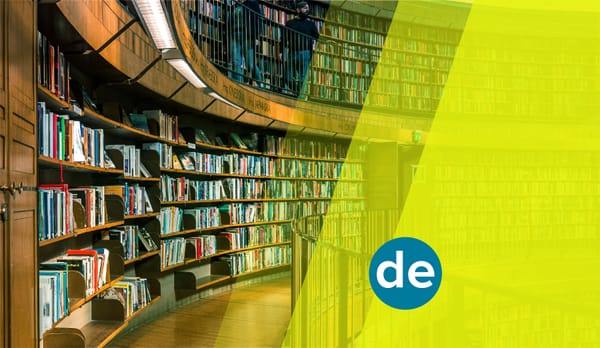Global Digital Compact unanimously adopted
On 22 September 2024, the "Global Digital Compact" was unanimously adopted in New York as an annex to the "UN Pact for the Future" by 193 heads of state and government. The GDC contains 13 guidelines and defines five goals for the digital future. It requests the digital divide to be overcome and linked to the realisation of human rights. The digital transformation must support the UN Sustainable Development Goals (SDGs). There is a need for data governance and rules for the cross-border flow of data. The GDC includes recommendations on data integrity, cyber security and the development of the digital economy. AI risks should be minimised, opportunities maximised and the emergence of a new North-South AI divide prevented. A UN AI Council, an annual AI dialogue and a GDC/AI office at the UN TechEnvoy is to be established. The multi-stakeholder approach to internet governance is confirmed, but not further developed, and so is the IGF. In 2027, a GDC review conference will take place on the margins of the 82nd UN General Assembly in New York.
UN recommendations for governing AI for humanity
On 20 September 2024, the UN AI expert group presented its final report "Governing AI for Humanity". The UN report describes AI as one of the greatest challenges facing humanity. It says that AI offers opportunities to solve global problems but is also associated with risks. There are seven recommendations. "1. an international scientific panel on AI; 2. policy dialogue on AI governance; 3. AI standards exchange; 4. AI capacity development network; 5. global fund for AI, 6. global AI data framework, 7. AI office within the UN Secretariat". Three of these recommendations (AI panel, AI dialogue and AI office) have already been implemented in the Global Digital Compact. The UN TechEnvoy, Amandeep Singh Gil, was a member of the AI Council. The member of the Bundestag of the German party Alliance 90/The Greens, Anna Christian, sat on this UN AI Expert Council for Germany.
New EU Digital Commissioner appointed
The new EU Commissioners were appointed on 16 September 2024. The former Finnish minister Henna Virkkunen is to become EU Digital Commissioner. She will have the title "Executive Vice-President for Tech Sovereignty, Security and Democracy". Virkkunen is responsible for implementing the EU's "Digital Decade" by 2030, including the implementation of the EU's AI strategy, digital innovation, drafting new laws on the cloud and digital networks and implementing the adopted laws (DSA, DMA, AI Act, Chips Act, Media Freedom Act, NIS2, etc.) as well as internet governance. She heads two Directorates-General: DG CONNECT and DG DIGIT. The new EU Commissioners Ribera (Competitive Transition), Séjourné (Industrial Strategy), Mînzatu (Skills and Education), Zaharieva (Start-ups, Research and Innovation), Kubilius (Defence) and Kallas (Foreign Affairs) will be responsible for certain areas of the digital transformation. However, the European Parliament still has to confirm them.
G20 digital ministers call for digital inclusion for all
On 13 September 2024, the annual meeting of the G20 Digital Ministers took place in Maceió, Brazil. The "G20 Maceió Ministerial Declaration on Digital Inclusion for All" evokes "the importance of building safety, resilience, security and trust and creating an enabling, inclusive, open, fair, non-discriminatory, safe, secure and sustainable digital economy that puts humans and their development at the center and enables the protection, promotion and full enjoyment of human rights". No concrete resolutions were passed. Topics discussed included universal and meaningful connectivity for the global South, the promotion of digital public infrastructure (DPI), fake news and disinformation as well as artificial intelligence.
FOC questions UN Convention against Cybercrime
On 16 September 2024, the Advisory Board of the Freedom Online Coalition (FOC) recommended rejecting the UN Convention against Cybercrime negotiated in August 2024. The convention would do little to reduce cyber crime but would give authoritarian states the opportunity to legitimise censorship and surveillance by invoking international law.
NATO CCS calls for better cyber deterrence
The second NATO Cyber Champions Summit (CCS) took place in Sydney on 5 September 2024. James Appathurai, NATO Deputy Assistant Secretary General for Innovation, Hybrid and Cyber, warned of an increase in cyber attacks and called for NATO to develop a higher level of deterrence against threats in cyberspace. The CCS aims to bring together the military, business, technical community and other stakeholders to better assess current political and military challenges in cyberspace. It was first held in Lithuania in 2023. Korea will host the event in 2025.
Plea in favour of the multistakeholder model
On 2 September 2024, the new "Technical Community Coalition on Multistakeholderism" (TCCM) published a statement on the upcoming meeting of the ITU-CWG Internet (Geneva, October 2024). The CWG Internet has recently been a place of repeated disputes over state supervisory models for the management of domain names and IP addresses. The declaration states: "The multi-stakeholder approach fosters diversity, accountability and transparency that cannot be replicated in intergovernmental environments alone. It also ensures that decision-making about the Internet and its governance isn't led by individual nation-based political interests. The multi-stakeholder approach is the appropriate model to govern the Internet".













